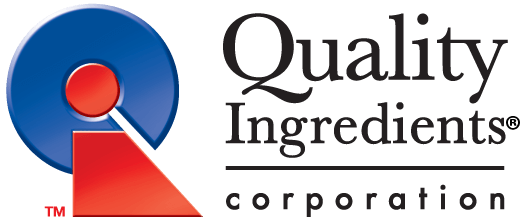
Quality Ingredients Corporation’s Position in the Market
Billions of pounds of powdered food ingredients are manufactured every year. There are countless contract manufacturers/tollers using spray drying equipment and technologies to turn liquid into powder. Quality Ingredients (QIC) is one of those countless contract manufacturers turning liquid into powder. So, how can you tell the difference between contract manufacturers? What should you think about and what should you look for?
We are not just making powders. We’re building manufacturing advantages, one customer at a time.®
At QIC, we measure success in the strength of the manufacturing advantage we build with a customer, for the customer, one customer at a time.
Accordingly, we add the most value when the work to be done requires a manufacturing advantage:
When the product is unique, high value, or needed in smaller quantities.
When the customer’s business needs a level of support that goes beyond the physical powder itself.
We work with customers to turn manufacturing worries into manufacturing advantages.
By contrast, if your contract spray drying needs are simple and straightforward such that anybody can dry it for you, than anybody should dry it for you. Since anybody can dry it, by definition there are no consequences to choosing one dryer over another. Keep it simple and select the low cost producer to get the lowest price.
The work we do at QIC is, generally, not simple and straightforward spray drying. In more cases than not, there are certainly consequences if the work we do was simply taken to any other spray dryer.
Suggested Approach to Choosing Your Partner
We will outline a suggested approach to finding the best contract manufacturer for your particular needs. Then, we will define the types of needs that QIC is best suited to handle. We know QIC is not going to be the best choice in every situation. Our intent is to give you enough insight to determine if QIC may be your best choice. If we are, we would value the opportunity to discuss your requirements.
QIC would suggest that there is a two step evaluation process to find and select the best contract spray dryer for your needs. The first step is a STRUCTURAL evaluation across multiple spray dryers. The second step is an INTANGIBLE evaluation of spray dryers that were qualified from the first, structural evaluation.
The point of the structural evaluation is to identify which competitors have the equipment set-up that will best meet your needs. Within equipment set-up, we will focus on equipment scale. Equipment scale is critically important. Spray dryers come in a large variety of sizes. Size does not define what a dryer can and cannot dry. In general, if one dryer can dry your product, most other dryers will be able to dry it as well. But you are not looking for just any dryer that can dry your product. The best fit dryer will be scaled appropriately for your needs.
QIC has studied the marketplace and the impact of equipment scale. We have developed the diagram below to illustrate how to think about your product and where it best fits.
If your product is a fairly standard item, widely available, uses common raw materials, and is produced in large quantities, it would tend to fall in Zone 1. An example of a Zone 1 product would be a standard lemon flavor produced in campaigns of 100K pounds 6X per year.
Zone 1 items are best suited to large dryers. Large dryers are those with evaporative capacity of 3,000 + pounds/hour. They are built and designed to push volume – they are at their best when they are constantly running and churning out high volume items. Large dryers are expensive and they need to produce a lot of volume to earn an adequate return on capital.
By contrast, a Zone 3 item is highly unique, proprietary, uses high value raw materials, and is produced in small quantities. An example of a Zone 3 product would be a proprietary ingredient for use in a dietary supplement produced in campaigns of 1K pounds 6X per year.
Zone 3 items are best suited to small dryers. Small dryers are designed to enable more flexible processing protocols and shorter starts and stops. A small dryer is not about pushing large volumes. Small dryers are expensive in their own right – they need to focus on specialized products that command higher margins to earn an adequate return on capital.
Interestingly, both large and small dryers can indeed produce lemon powder and dietary supplements. Both can do it, but that doesn’t mean both should do it. A small dryer is not likely to be economically competitive with a large dryer for 100K pound lemon powder runs. A large dryer is not likely to find it worthwhile to spend its time on 1K pound dietary supplement powders.
So, how should you use this information? In general, a product should run on the largest dryer than it can be successfully run on, as the largest possible dryer will give it the best economics. But the larger the dryer, on average, the less flexibility there will be – whether in processing protocols, minimum quaniities, lead times, etc. So, there is a trade-off of cost and flexibility. Large volume, standard, commodity items tend to go to large dryers. Small volume, unique, high value items are more likely to go to small dryers. If a product can move from a small to a larger dryer, tolling cost per pound will generally go down. If a product needs to move from a large to a smaller dryer, tolling cost per pound will generally go up.
QIC is, in general, a Zone 3 contract manufacturer. QIC excels at taking great care with smaller volume, unique, high value items requiring special handling and processing. This is not to say that QIC can not, or will not, work in Zone 1 or Zone 2. QIC does work in Zone 1 and Zone 2. Every case is different and there are times when other factors outweigh equipment scale considerations, making QIC the best choice for Zone 1 or Zone 2 work.
More to Consider
The point of the structural evaluation was to identify which competitors have the equipment set-up that will best meet your needs. Once you have narrowed the range of competitors from a structural perspective, you are left with a smaller group of contract spray dryers that are all technically capable of meeting your contract spray drying requirements. The intangible evaluation should enable you to select the single contract spray dryer that will best meet your overall business requirements.
The intangible evaluation goes beyond the equipment capabilities and suitability of the structural evaluation. The intangible evaluation considers factors that can vary substantially from one contract spray dryer to another, yet can be critical to create a unique manufacturing advantage just for you. Here are the intangible factors. Does the contract spray dryer being evaluated –
Have the skills, will, and desire, to customize a manufacturing process to meet the unique needs of your product?
Have the skills and equipment to support efforts to develop, scale up, refine, and improve formulas?
Have the skills, will, and desire to co-invest in ancillary equipment, if needed, to meet the unique needs of your product?
Have the wherewithal to work through lengthy or multiple trials to get everything just right?
Follow a philosophy of transparency such that its manufacturing floor is open at all times, its entire company staff is available for any discussion, and it is proactive around communicating ideas and issues?
Have flexibility when needed to work with tight deadlines, packaging changes, logistics changes, securing raw materials?
Run a tight ship operationally and is well versed in manufacturing metrics?
Place employee safety and food safety as first priorities?
Understand the cost of waste and works to maximize yield?
Have a facility that is safe, modern, well maintained, clean, and well organized – a facility that you would be proud to call your own and proud to welcome your customers to visit and audit?
Display a strategic commitment to excellence in contract manufacturing and growing with its customers; it does not just offer contract manufacturing to fill open capacity on its lines?
Completely understand the importance of protecting your intellectual property and confidentiality?
Offer organizational stability as a function of its professional governance and financial standing?
Help make your organization be stronger in the marketplace?
In conducting your intangible evaluation of contract spray dryers, first review these 14 items and determine how important each one is to you and how important it is to creating a manufacturing advantage for you. Then rate each of your potential contract spray dryers against these items. More than likely, you will end up with a very short list of who your “best mutual fit” contract spray dryers are.
QIC works hard to excel in the intangibles described above. The intangibles are all about service; we think of ourselves as a service business before we think of ourselves as a manufacturer; and service is the most common denominator that runs through the blood of every QIC employee owner. It is what defines us; it is how our customers define us. Our customers are the center of our universe and everything we do.

Proudly serving customers since 1987
QIC has always been in the business of turning liquid into powder. That has been the one constant in our history. Our accomplishments and evolutions are driven by a focus on unfilled market needs. We have always looked for opportunities to add value in a unique way such that if we didn’t exist, the market would experience a loss.



